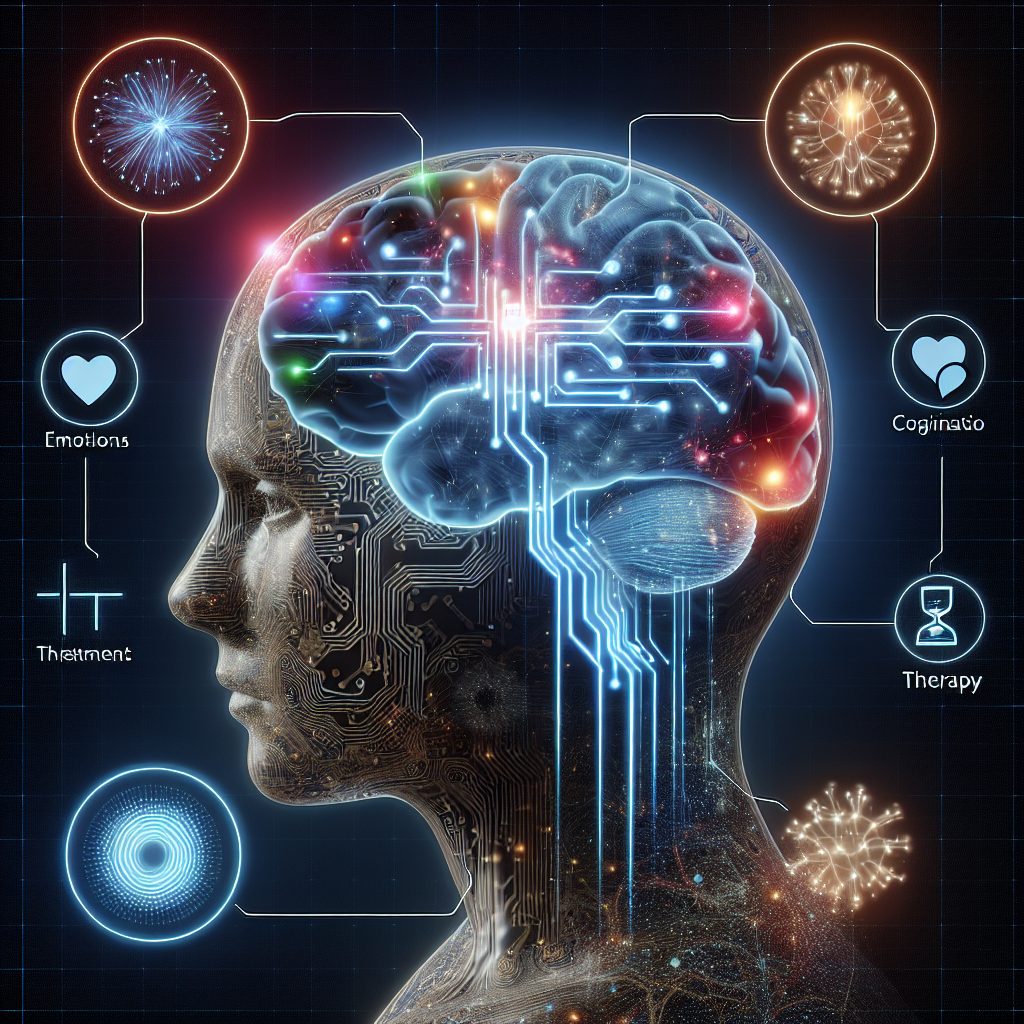Artificial Intelligence (AI) has made significant advancements in various industries, and mental health is no exception. AI deployment in mental health has the potential to enhance therapy and improve outcomes for individuals struggling with mental health issues. From personalized treatment plans to early intervention and monitoring, AI technology is revolutionizing the way mental health services are delivered.
One of the key benefits of AI deployment in mental health is the ability to provide personalized treatment plans for individuals. AI algorithms can analyze vast amounts of data, including a person’s medical history, symptoms, and responses to treatment, to tailor therapy plans that are specific to their needs. This personalized approach can lead to more effective treatment outcomes and better patient satisfaction.
AI technology can also be used for early intervention in mental health issues. By analyzing patterns in a person’s behavior and speech, AI algorithms can identify signs of mental health problems before they escalate. This early detection can lead to timely intervention and prevent more serious mental health issues from developing.
In addition to personalized treatment plans and early intervention, AI deployment in mental health can also improve monitoring of patients’ progress. AI algorithms can track a person’s symptoms and responses to treatment over time, providing therapists with valuable insights into the effectiveness of their interventions. This real-time monitoring can help therapists adjust treatment plans as needed and ensure that patients are receiving the best possible care.
Furthermore, AI technology can enhance therapy sessions by providing therapists with additional tools and resources. For example, AI chatbots can be used to provide support and guidance to individuals between therapy sessions. These chatbots can offer coping strategies, mindfulness exercises, and other resources to help individuals manage their mental health on a day-to-day basis.
Despite the numerous benefits of AI deployment in mental health, there are also challenges and concerns that need to be addressed. One of the main concerns is the potential for AI technology to replace human therapists. While AI can enhance therapy sessions and provide valuable insights, it is important to remember that human connection and empathy are essential components of effective therapy. AI technology should be seen as a tool to support therapists, rather than a replacement for human interaction.
Another challenge is the need to ensure the privacy and security of patient data. AI algorithms rely on vast amounts of data to analyze and make predictions, which raises concerns about data privacy and security. It is crucial for mental health professionals to implement robust data protection measures and comply with regulations to safeguard patient information.
Despite these challenges, the potential benefits of AI deployment in mental health are vast. By harnessing the power of AI technology, mental health professionals can provide more personalized, effective, and efficient care to individuals in need. From personalized treatment plans to early intervention and monitoring, AI technology is transforming the way mental health services are delivered.
FAQs:
Q: Can AI technology replace human therapists in mental health care?
A: AI technology is not meant to replace human therapists but to enhance therapy sessions and provide additional tools and resources. Human connection and empathy are essential components of effective therapy, and AI should be seen as a tool to support therapists, rather than a replacement for human interaction.
Q: How can AI technology improve mental health treatment outcomes?
A: AI technology can improve mental health treatment outcomes by providing personalized treatment plans, early intervention, and monitoring of patients’ progress. By analyzing vast amounts of data, AI algorithms can tailor therapy plans to individuals’ needs, identify signs of mental health problems early, and track patients’ symptoms and responses to treatment over time.
Q: What are the concerns around AI deployment in mental health?
A: Some of the concerns around AI deployment in mental health include the potential for AI technology to replace human therapists, data privacy and security issues, and ethical considerations. It is important for mental health professionals to address these concerns and ensure that AI technology is used in a responsible and ethical manner.

